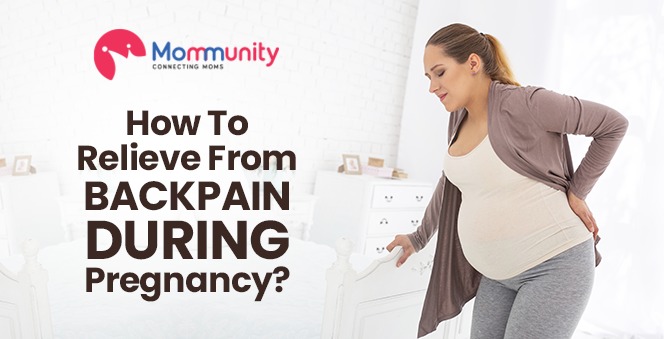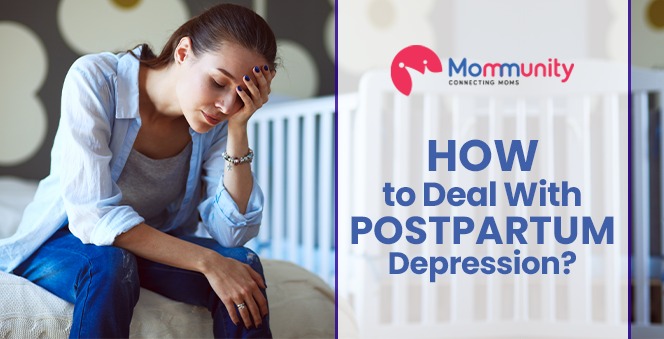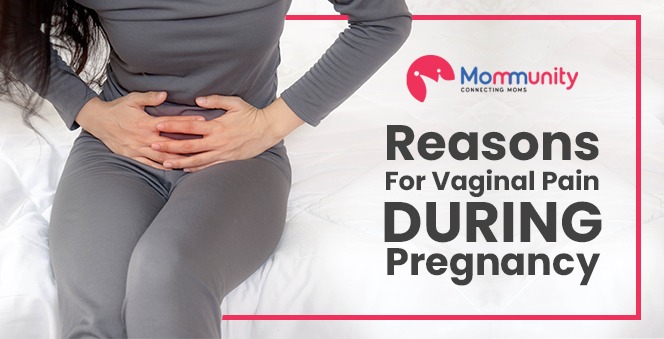Back pain is no wonder a common complaint during pregnancy. You gain weight, your center of gravity changes, and your hormones fluctuate and relax the ligaments in your pelvis joints. However, you can often prevent or ease back pain during pregnancy. In this article, Mommunity brings to you the common causes for back pains during pregnancy and ways on how to relieve them.
CAUSES OF BACK PAIN IN PREGNANT WOMEN
Pregnancy back pain usually happens at the sacroiliac joint, where the pelvis meets your spine. There are many possible reasons for it some of them are:
1. Weight gain. During a healthy pregnancy, women can gain between 25 to 35 pounds. The spine has to support that weight. That can cause lower back pain. The weight of the growing baby, as well as the uterus, puts some pressure on the blood vessels and nerves situated at the pelvis and the back.
2. Posture changes. Pregnancy shifts your centre of gravity. Due to this, you may gradually begin to adjust your posture and the way you move, even without noticing. This may lead to back pain or strain.
3. Hormone changes. During pregnancy, your body makes a hormone called relaxin that allows ligaments in the pelvic area to relax and the joints to become looser in preparation for the birth process. The same hormone causes the ligaments that support the spine to loosen, leading to instability and pain.
4. Muscle separation. Two parallel sheets of muscles (the rectus abdominis muscles), which run from the rib cage to the pubic bone, may separate along the centre seam, as the uterus expands. This separation may worsen back pain.
5. Stress. Emotional stress causes muscle tension in the back, which may be felt as back pain or back spasms. You may experience an increase in back pains during stressful phases of your pregnancy.
TIPS FOR PREVENTING AND AVOIDING PAIN
There are many effective ways to avoid back pain during pregnancy, some of them are:
- Pregnancy-friendly exercises, with doctor’s approval, to strengthen the back muscles
- Maintaining a healthy weight throughout pregnancy
- Wear flats or low-heeled footwear for proper support
- Do not stand for too long
- Do not lift too much weight
- Practice proper lifting techniques by squatting down and using the legs instead of the back
- Practice a good body posture
- Do not sleep on the abdomen
Here are some ways to help you ease your back pain:
1. PRACTICE GOOD POSTURE
As your baby grows, and you gain weight, to avoid falling forward, you might compensate by leaning back, which may strain the muscles in your lower back and cause back pain during pregnancy.
KEEP THESE THINGS IN MIND TO MAINTAIN A GOOD POSTURE:
- Stand up straight and tall.
- Hold your chest high.
- Keep your shoulders back and relaxed.
- Do not lock your knees.
- Use a comfortably wide stance when you stand, for the best support. If you have to stand for long periods, take frequent breaks.
- Good posture also means sitting with care. Sit on a chair with some back support, or place a small pillow behind your lower back.
2. GET THE RIGHT GEAR
Wear low-heeled shoes with good arch support. Avoid wearing high heels, which can shift your balance forward and cause you to fall. You might also consider wearing a maternity support belt, some women find the additional support helpful.
3. LIFT PROPERLY
While lifting a small object, squat down and take support from your legs. Do not bend at the waist or lift with your back.
4. SLEEP ON YOUR SIDE
Sleep on your side, not your back. Keep one or both knees bent. Consider using pillows that give you support during pregnancy, between your bent knees, under your abdomen, and behind your back.
5. TRY HEAT, COLD OR MASSAGE
While there are not a lot of evidence about its effectiveness, massage or the application of a heating pad or ice pack to your back might help.
6. TRY INCLUDING PHYSICAL ACTIVITIES IN DAILY ROUTINE
Practising physical activities regularly can keep your back strong and might relieve your back pain. A physical therapist can also help you with stretching and other exercises that might help. Consult your health practitioner and practice some exercises approved by them.
7. CONSIDER COMPLEMENTARY THERAPIES
Some researchers suggested that acupuncture may help ease back pain during pregnancy. Chiropractic treatment may provide comfort as well. However, further research is required. But in case you’re considering complementary therapy, discuss it with your health care provider. Do not forget to inform the chiropractor or acupuncturist that you are pregnant.
If you experience severe back pain during pregnancy or back pain that lasts more than two weeks, consult your health care provider. They might recommend medication or other treatments. Always remember that back pain during pregnancy might be a sign of preterm labour or a urinary tract infection. If your back pain is accompanied by vaginal bleeding, fever or burning during urination, contact your health care provider immediately.




